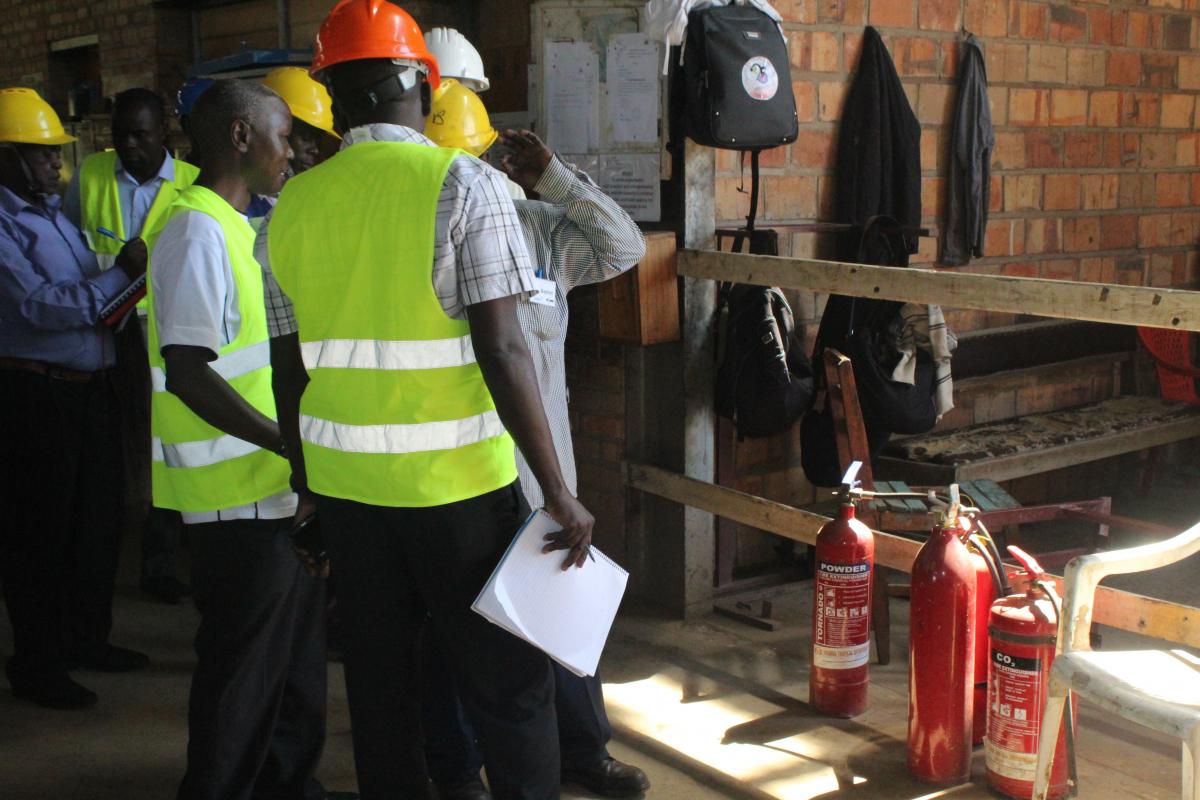Health and safety now a priority for St Josephs VTI work spaces
St Joseph’s Vocational Training
Institute was once in an appalling security situation. The institute no
formalized occupational health and safety management plans. There were
no emergency exits in their workshops, they had no protective gear such
as helmets, overalls, steel cap boots and so on.
The institute had multiple
entry points and thus anyone could get in and out of the institute
without notice. The cooking areas were in dire state, food handling was
inefficient, there were no emergency kits such as fire extinguishers and
first aid boxes, waste management was lacking, sanitation facilities
were lacking and so on.
Following the analysis
exercise of the organizational environment in occupational health and
safety at the institute, a course in Occupational Health and safety
among other interventions was recommended.
OHS training participants tour the institute workshop to identify health and safety risks
This course focuses on the
social, mental and physical well-being of workers in all occupations
raising awareness on unhealthy or unsafe working conditions thus aiming
at decreasing work-related accidents and diseases.
“The risks have so far been
cut to over half,” As Geoffrey Oromcam the course trainer confirms
after a tour of the institute workshops. There is now only one entry
point to the institute with a fence built around the institute and only
one open gate.
Workshop lay out has
improved at the institute. There are signs on safety in place in the
workshops, garbage disposal has greatly improved with colored bins put
in place, and emergency exits have been put in place in workshops among
other changes.
Tumusiime Edward Moses a
participant in the training says, “I have at least changed how I was
operating. I didn’t have any fire protection equipment, but now I do,
although using manual methods such as sand.’’ “I have also trained my
staff on how best to act in case of an emergency.’’ He adds.
Muhangi Peter, who works as
an instructor in the mechanical department adds onto Edwards testimony
that he has learnt how to use PPEs (personal protection equipment), and
to identify hazards in the workshop. He also agrees that there are
numerous safety hazards in their workshops but now that they can
identify them, the problem is half way solved.
Magezi Francis, an
instructor in Mechanical engineering at the institute also has a lot to
say about the training. He has learnt how best to use PPEs. To himself
and his students, personal safety comes first.
Musinguzi Solomon proudly
talks about how this training has improved on his work. “This training
has helped me a lot. If you visit my workshop now, you will find it very
organized,’’ he adds.
However, to some beneficiaries of the training, change is yet to come.
“If you visited my workshop
now, it is in a mess, but after this training today, I am going to sit
down and put it in order in as far as safety is concerned,” says Ben
Mulogwa an MCP at the institute.
On a whole, the knowledge
has been passed on to the training participants. Despite the challenges
the participants are faced with, they are optimistic and will do
whatever they can to ensure they improve safety in the workshops to
reduces health risks to them and their students.
Dernières actualité de ce projet
Pas d'actualité

